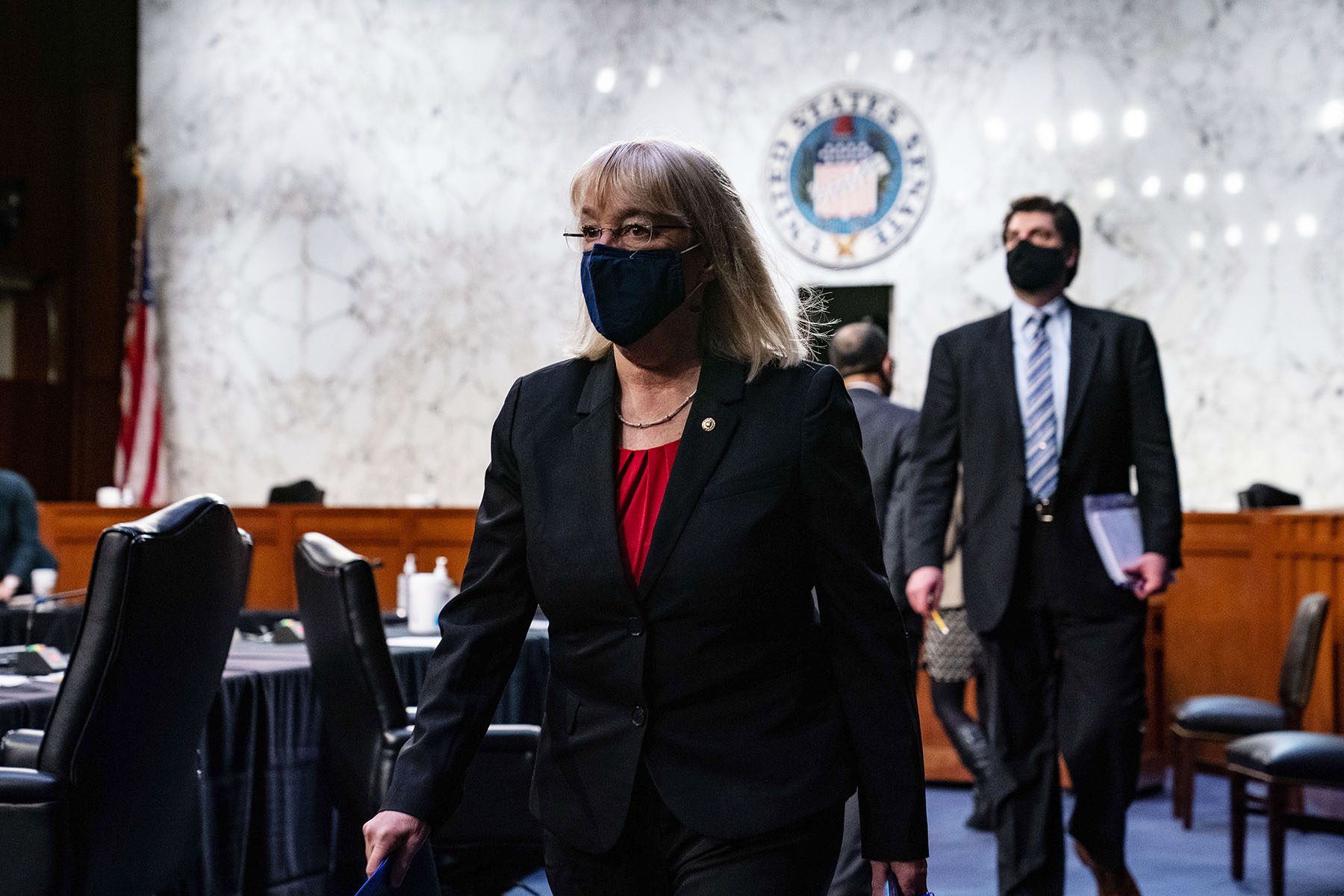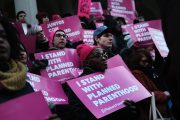This article has been updated with statements from Sen. Richard Shelby and Shalanda Young, the acting director of the Office of Management and Budget.
As the annual budget process continues in Washington, Sen. Patty Murray has introduced a budget bill in the Senate Appropriations Committee that removes both the Hyde Amendment and the Weldon Amendment, two pieces of legislation that limit the ways federal funding is used in relation to abortion. The bill also includes new, historic investments in Title X, the federal family planning program. In the midst of continuing attacks on reproductive health care in Texas and nationwide, Murray’s bill sends a strong message about where Democratic leadership comes down on both abortion and contraception access.
“With reproductive and abortion rights under attack from every angle — and with Roe hanging in the balance at the Supreme Court — now is the time to lay out a clear vision for a future in which each person’s right to make deeply personal decisions about pregnancy and parenting is protected, and in which reproductive health and rights are not up for debate,” Murray said in a statement announcing the bill.
Murray serves as chair of the Senate Appropriations Subcommittee on Labor, Health and Human Services, Education, and Related Agencies (LHHS).
The Hyde Amendment has been included by Congress in the annual spending bill that funds the federal government every year since it was first introduced in 1976; it prohibits federal funds from covering abortion services for anyone enrolled in Medicaid, Medicare and the Children’s Health Insurance Prorgam (CHIP). While 16 states provide their own funding for abortion coverage for people enrolled in their state’s Medicaid program, low-income Americans in the remaining 34 states plus the District of Columbia are forced to pay out of pocket for all abortion services as a result of Hyde.
The Weldon Amendment, which has accompanied all spending bills alongside Hyde since 2005, effectively works by blocking the federal Department of Health and Human Services (HHS) from funding any state or local government programs that “discriminate” against insurance plans or health care professionals that will not “provide, pay for, provide coverage of, or refer for abortions.” As a result, many state governments face the threat of losing federal funding should they independently provide abortion coverage for their residents through their own Medicaid programs. It has also been used by many Republican administrations — and was broadened during the Trump administration — to be utilized as a tool for reinforcing a “gag rule” on Title X, the federal family planning program, by barring providers in the Title X network from mentioning abortion services to their patients.
The Hyde Amendment, with its longevity, is better known — , and the groups most affected by it correspond with those disproportionately affected by income levels and economic opportunities that drive Medicaid enrollment. Twenty-nine percent of Black women and 25 percent of Hispanic women of reproductive age — that is, between the ages of 15 and 49 — were enrolled in Medicaid in 2019. Comparatively, only 15 percent of White women and 12 percent of Asian women are among Medicaid enrollees. In all, about 7.8 million women of reproductive age are enrolled in Medicaid programs that don’t cover abortion; half of these women are women of color.
Hyde also restricts those who are insured through other federal programs — including federal employees, active duty service members and veterans, those incarcerated in federal prisons, those who access health care through Indian Health Services (IHS), and Peace Corps volunteers — from using their insurance to access abortions.
The bill proposed by Murray, a Washington Democrat, also allocates $500 million to Title X, a historically high level of funding for the federal family planning program. (Title X received $286.5 million in federal funding in 2021.)
In proposing the bill, Murray’s subcommittee drew objections from Sen. Richard Shelby, the vice chair of the Senate Appropriations Committee, who said the spending bill was partisan and took resources away from other priorities. “This one-sided process has resulted in bills that spend in excess of the Democrats’ own budget resolution and fail to give equal consideration to our nation’s defense,” Shelby said in a statement shortly after the budget proposal was posted.
The statement further criticized the proposal to “remove important legacy riders on topics like terrorism, abortion, and immigration that for years have enjoyed broad support on both sides of the aisle.”
-
Read Next:
Though the bill still has to pass the Senate and then the House — and is likely to be met with opposition in both chambers for the way it insists on the removal of Hyde and Weldon for the annual appropriations process — it is a significant step forward and message sent from Murray, who is the Senate’s assistant Democratic leader, the third-highest ranking member of her party.
In her statement, Murray said: “Every single person deserves to make their own decisions about pregnancy and parenting — but right now, the unacceptable reality is that the choices available to you still depend on your income, your zip code, or how you get your health insurance. Right now, too many people can’t exercise their right to an abortion because of federal abortion coverage restrictions, or can’t afford the family planning services they need. That’s unfair and unjust — especially for women who have low incomes and people of color. We’ve got to do better.”
The exclusion of the Hyde Amendment has been a priority at multiple levels of the administration. It’s a position Shalanda Young, the acting director of the Office of Management and Budget who helps oversee the president’s budget request, reiterated during her confirmation hearings in March when she called the issue one of economic and racial justice.
“It most significantly impacts Medicaid recipients, who are low-income and more likely to be women of color,” Young said then, facing opposition from Republicans specifically due to her stance on the Hyde Amendment. She was confirmed along a largely party-line vote.
In May, she helped put forth a budget request that excluded the Hyde Amendment. Speaking to The 19th on Friday, Young, who is nine months pregnant, reiterated the administration’s desire to keep Hyde out of the final budget. “It is an iterative process, a long process, and we will continue to negotiate it,” Young said.







